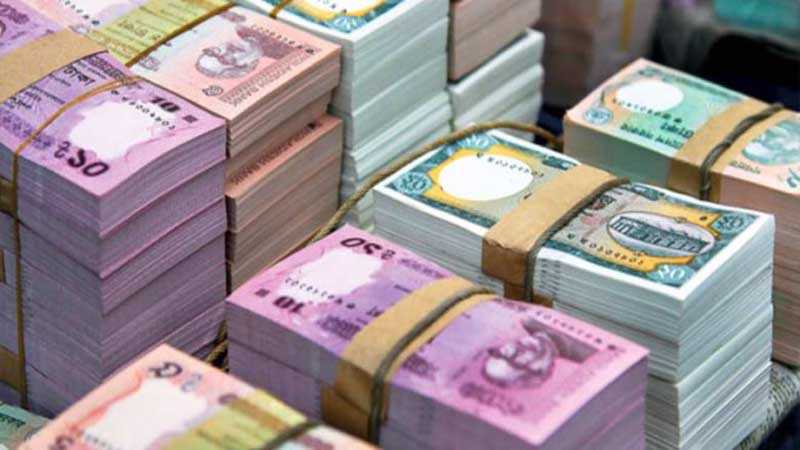Private banks raise deposit rates

Interest rates on bank deposits have increased following a high credit growth and liquidly shortfall, particularly in the private sector, according to bank officials. Different private banks already increased their interest rates in December last year. According to Bangladesh Bank, the increased interest rates on fixed deposits for most banks, including state-owned banks, vary from 5 to 8 per cent per annum.
AB Bank offers 7.5 percent for three months and 8 per cent for a one-year term. But BRAC Bank offers 5 per cent to 8 per cent depending on the deposited amount; Dhaka Bank offers 5 per cent to 7 per cent; Bank Asia offers 6 per cent to 7 per cent; ICB offers 7.5 per cent to 8 per cent, NRBBL offers 7 per cent to 8 per cent.
Among private banks, DDBL, City Bank, Standard Bank, Mutual Trust Bank, Shimanto Bank and Jumuna Bank offer interests below 6.5 per cent. Other private banks offer 6 per cent to 6.5 per cent.
Among foreign banks, only NBP offers 8 to 8.5 per cent interest per annum, while the others offer 4 to 5.5 per cent.
Laat Tuesday, Bangladesh Bank issued a directive to banks to bring down their advance deposit ratio (ADR) to a maximum of 83.50 per cent by 30 June, down from the existing more than 85 per cent.
However, this will be applicable to conventional banks, while the limit for Islamic banks (where it is termed IDR) and the Islamic branches of conventional banks will be a maximum of 89 per cent, down from over 90 per cent now.
The Department of Off-site Supervision (DOS) of the central bank has issued the directive through a circular.
As per the circular, until the next directive, conventional banks will have to maintain their ADR at 83.50 per cent (80.50 per cent plus 3 per cent by the decision of the bank board), while Shariah-based Islamic banks will have to maintain the investment deposit ratio (IDR) at 89 per cent (88 per cent plus 1 per cent by the board decision).
Last week, BB Governor Fazle Kabir at the
unveiling of the monetary policy statement hinted that the central bank would soon take measures to contain aggressive banking by some banks.
Even the call money rate increased to 4.5 per cent, according to central Bank data.
According to central bank report, the surplus liquidity was Tk 86,463 crore as of September 2017, which was Tk 126,000 crore in January, and Tk 122,000 crore in June.
As the investment situation has not improved for long, the banks have invested a major portion of their surplus liquidity in bonds and bills that provide small interests. The banks have invested at an interest rate less than 2.5 per cent with the duration of one or two weeks and one month.
According to BB’s earlier circular, the commercial banks can disburse loans up to 85 per cent out of the total liquidity, however, the Islami banks can provide loans up to 90 per cent. But recently, most private banks have disbursed loans more than 90 per cent. In a meeting on January 3, Bangladesh Bank governor instructed the private banks to shun such aggressive investments.
A large number of banks had gone on an overdrive in lending, much of it to bad borrowers, that saw a phenomenal 19.06 per cent growth in private loans much in excess of the targeted 16.2 per cent. Low lending rates made bank money particularly attractive.
In December last year, lending rates went up to 13 per cent, although big clients are getting loans at 10 per cent, bank sources said. About the rising trend of the deposit interest rate, the lead economist of the World Bank, Dhaka office, told The Independent that banks have no alternative but to increase the deposit interest rate as they are facing a liquidity crisis because of high credit disbursement to the private sector and increasing imports.
It was a good sign that the interest rate came down to a single-digit lending rate last year, but the trend did not continue due to the rising deposit interest rate, he said.
He also said the government should rationalise the interest rate of NSD to make it competitive with the bank deposits. Moreover, there is no progress in resolving non-performing loans—it forces banks to increase their interest rates.
Similarly, Dr Saleh Uddin Ahmed, former governor of the central bank, said the Bangladesh Bank should take steps to tackle the situation strictly, particularly in case of ADR. He suggested a reduction in the operational cost to ensure dividends and improve banking services. The former governor said that clients have lost their confidence in banks, resulting in a decline in their deposit of small savings. He also said the rising trend would not impact businesses as it would be a short-term measure.
The rising trend in deposit rates was recorded in the last couple of months after the containment of a fall in January 2015, when the weighted average interest rate on deposits was 7.26 per cent. Most banks receive deposits offering higher interest rates as depositors want to increase their deposit growth more than that of credits, Saleh Uddin Ahmed explained.
Currently, bank deposits record a slower growth than that of credits as depositors feel discouraged to keep their money in banks mainly due to low interest rates.
The growth rate of deposits, on a year-on-year basis, came down to 10.94 per cent in June 30 last year from 13.13 per cent in December 2016, while the growth in credit rose to 15.98 per cent from 15.32 per cent during the same time, according to BB data.